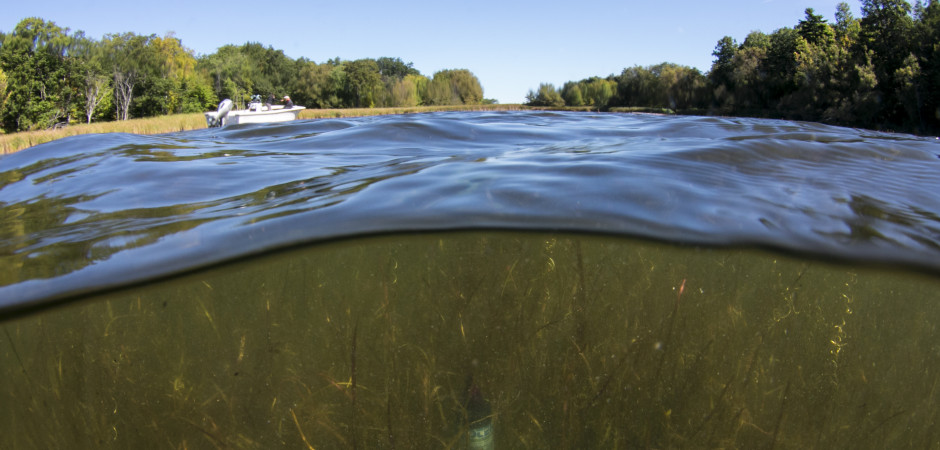Funded By
U.S. Fish and Wildlife Service
Research Team
Sarah Walton – MSc Student, Carleton University
Dr. Steve Cooke – Carleton University
Dr. John Farrell – ESF State University New York
Dr. Austin Gallagher – Postdoctoral researcher – Carleton University
Research Summary
The life history of muskellunge, a large and rare apex predator in freshwater ecosystems, has long remained cryptic to researchers. While muskellunge are found in small systems where they are restricted to small home ranges, they are known to migrate when inhabiting large systems such as the Great Lakes and their connecting rivers. In these systems, adults often spawn in specific bays that serve as nursery habitats, however little is known about the behaviour of these juveniles during their fall emigration. Filling this knowledge gap is crucial for establishing conservation zonation for critical habitat and the future sustainability of muskellunge recreational fisheries. Our team has applied novel technologies, such as JSATs tags and acoustic receivers, to address these difficult questions, and will use these data to understand the role of hydrologic and spatial features in juvenile fish habitat selection. Although muskellunge are the primary focus of this project, we are also conducting a comparative study on Northern pike, adding a valuable ecological food-web component to this work. This ESF-Carleton partnership highlights a long-term data and management commitment and represents a significant step towards addressing key knowledge gaps to further the conservation of river predators throughout their life history.





